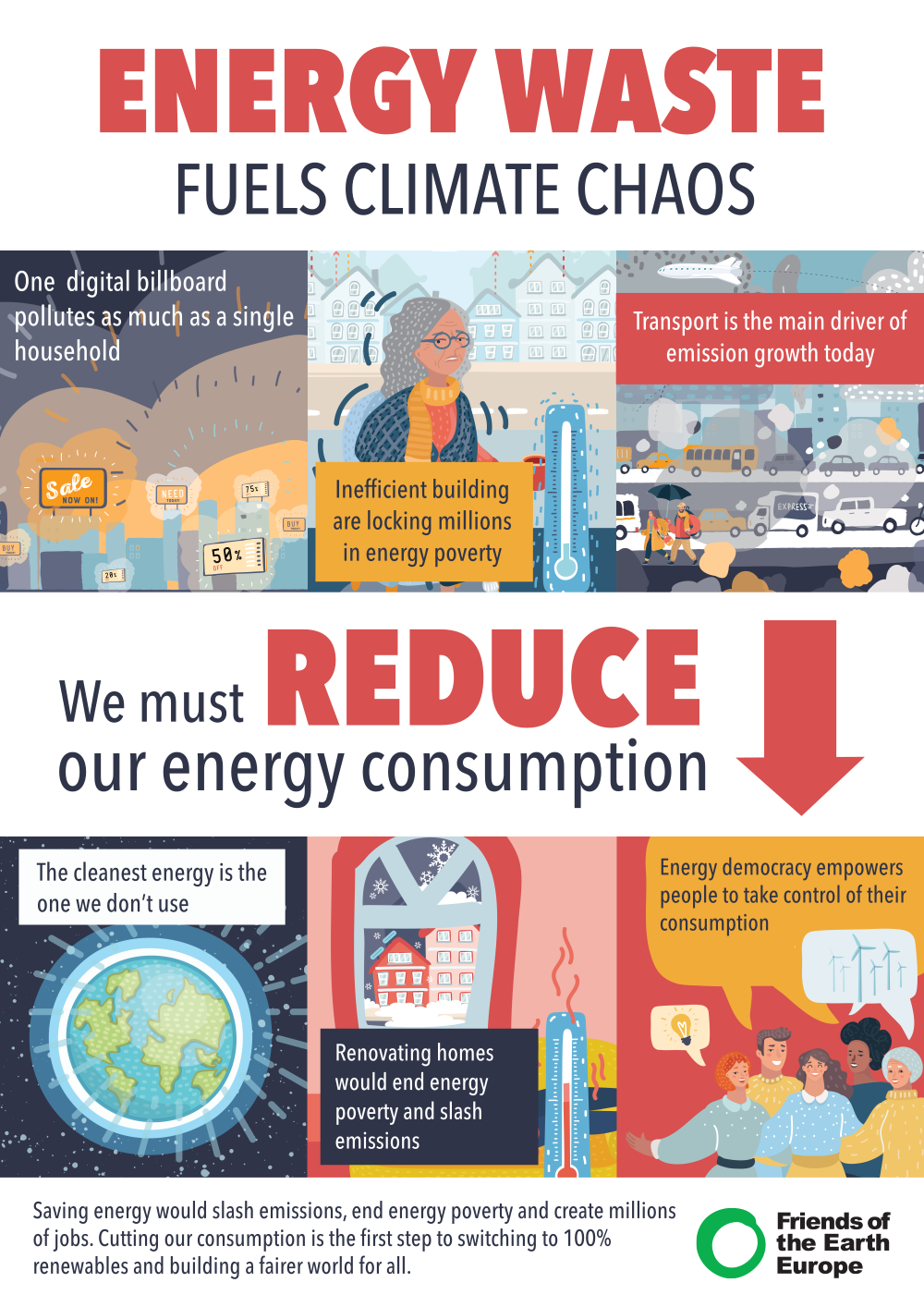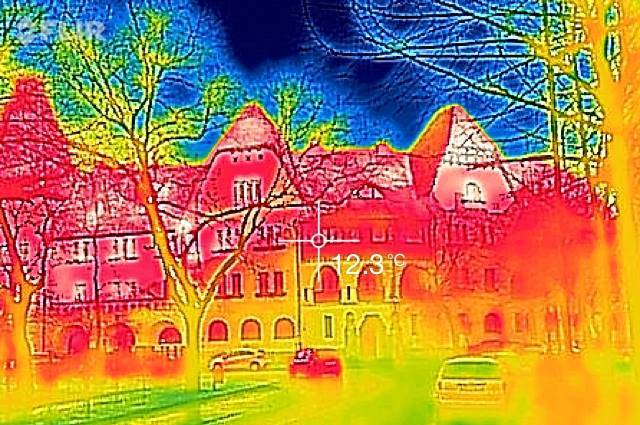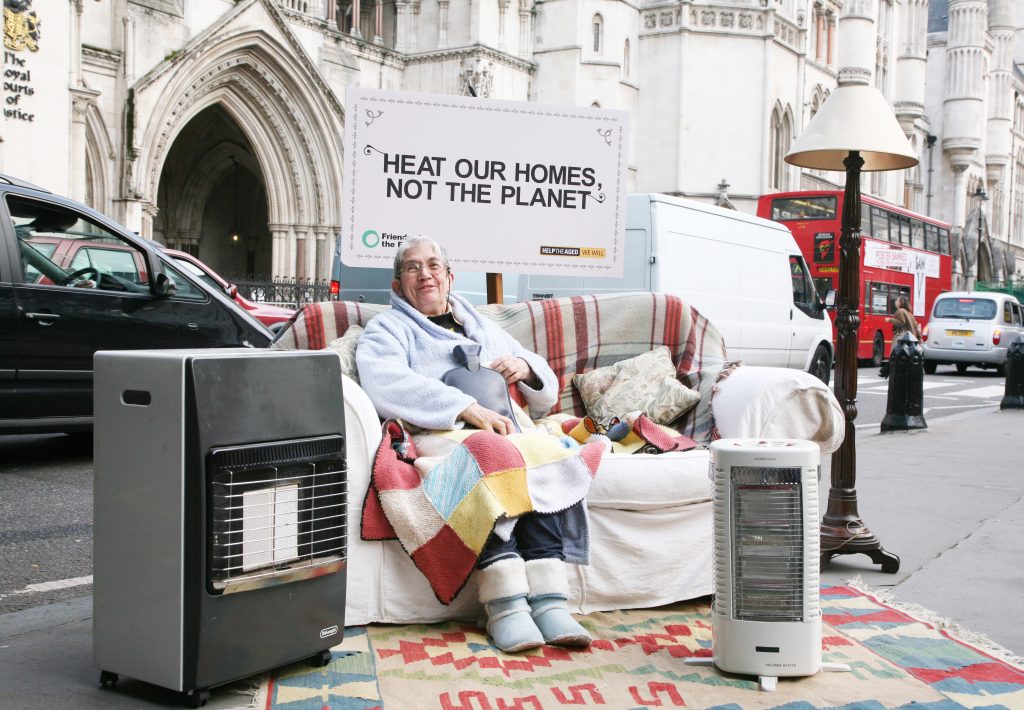Europe’s energy system is deeply wasteful – our energy consumption is too high, and we’re not improving.
Inefficient buildings losing heat from all sides. Cheap untaxed flights over short distances. Ad billboards flashing images into the night sky. Our economies consume tremendous amounts of energy – preventing the switch to 100% renewable energy.

We must drastically reduce our energy consumption
The more we cut our consumption, the less renewable energy we will need to install.
The cleanest, cheapest form of energy is the one we don’t use: saving energy is the backbone of the energy transition.

Broken promises
By the end of this year (2020), the EU should have reduced its energy consumption by 20%, according to a target agreed in 2012. This was already a very low target – we need to more than halve our energy consumption to decarbonise – which means a radical rethink of our economies and infrastructure.
But the latest data just release by Eurostat confirms even this low target will not be met, and Europe’s energy consumption has actually increased in 12 Member States.
In fact, according to the latest statistics, Europe’s energy consumption is higher now than when the target was agreed on in 2012 (see graph below).

Political will needed
Europe is about to blow its 2020 target for cutting energy waste. There is a clear lack of political will to cut our energy consumption and the failure of non-binding targets, as Member States shirk their obligations.
Europe is literally throwing energy – and money – out of the window, leaving its poorest citizens stuck in the cold.
It’s urgent we start tackling energy waste in buildings and transport, and rethink the way we consume energy in general: energy for what and for whom?
A wave of renovations
Solutions are within our grasp. Communities are taking a lead on reducing energy waste, like in Wekerle, Budapest.
Buildings are a clear opportunity: they represent around 40% of our energy consumption while the vast majority of Europe’s building stock is very inefficient. At the same time, 80 million Europeans live in unhealthy homes that contain mould or rot, or have a leaky roof, and 50 million Europeans cannot afford to keep their home warm.
It’s time for Europe to legislate, to set in motion massive renovation programs, to jointly tackle social crises and the climate emergency. The European Green Deal offers a historic opportunity, in particular the promises of a so-called ‘Renovation Wave’. Politicians must seize it.






